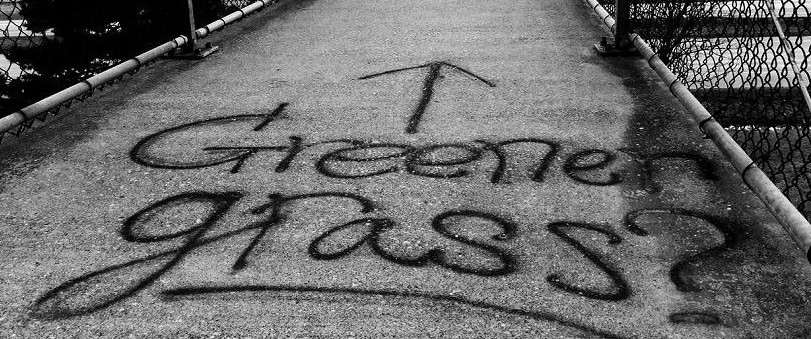 2023 has been a difficult year for me and, in some ways, I have lost my sense of direction and identity.
2023 has been a difficult year for me and, in some ways, I have lost my sense of direction and identity.
There’s no reason to get into the causes right now, other than to gloss over the specifics. It could have been many things, or a combination thereof: getting older, being busy, a new dog that requires a lot of walking–and I mean a LOT of walking–or something different entirely. I had many goals for the year, primarily writing-based and, staring down the final two months, I haven’t come close to doing what I want to do.
Three months ago, I decided my problem was procrastination. I needed to shift my thinking. I knew I was the cause of my own malaise; I had fallen into a rut that I couldn’t get out of. So I signed up for a series of classes from entrepreneur Peter Sage. I’m not exactly what caused them to show up in my newsfeed, but I think the hook was something about reinventing yourself. And I needed to reinvent myself.
Or so I thought.
Twelve weeks in, the series of courses has been hit or miss. There is some relevant content and I must admit, I admire the way he has monetized his various appearances, speeches and interviews. Should anyone click on the link and sign up, thinking it will help with their own writing, I’ll tell you right now: that’s not what it’s about. They are geared more toward business, toward entrepreneurship, but they are relevant in a way because what else is writing about, in the end? It’s a business. Like me, I assume you’re doing it to ultimately make money.
I’ll be breaking down some of the lessons here on my blog, going forward–or at least what I think about them and how they relate to writing or life in general. There are a couple of reasons for this, and tops among them are: it’ll help me reinforce the concepts to myself and, as you might be able to tell, I need to get back into the practice of writing. Also, since I’ve been away, WordPress has upgraded most of the user-friendly aspects out of the platform and I need to re-learn how to use it again.
Anyway, so far, my overriding takeaway is that I don’t need to reinvent myself. I need to remember who I am.
Maybe you fall under that category, too. There was a time when I wrote every day, even if I didn’t know what I was going to write about. I just banged away on an old electric typewriter–it wasn’t even mine–in a dorm room at Central Michigan University (the dorm room wasn’t technically mine, either; I only stayed there for a couple of semesters). It didn’t matter that I didn’t know what I was going to write. I, as I told myself and anyone who would listen, was a creative genius. I was a walking prompt.
Somewhere along the way, I lost that. Honestly, that’s not accurate. I didn’t lose it. I let it go. I let the muscles get flabby. I didn’t commit to it. I set myself back and then looked for reasons to justify it, excuses that people would understand, when I explained why my name wasn’t on the shelves. Life got in the way.
What I liked about Sage’s introduction (and much of the content) is that he essentially says if you’re using that excuse, you’re full of shit. Life always gets in the way. What you need to do, no matter what you want to do, is set yourself up to win. That means remembering who you are: nobody was brought into the world to fail. It means you have to have a vision and you have to have confidence in yourself and you have to make the commitment.
I recently watched an interview with Arnold Schwarzenegger on The Late Show with Stephen Colbert. When he was starting out as a bodybuilder (Arnold, not Stephen), he didn’t even have a Plan B. That’s how confident he was, and look where it took him.
The commitment to yourself and your goals, according to Sage, is setting yourself up to win. You have to do it every day and evaluate the steps you take along the way.
“Commitment is doing the thing you said you’d do, long after the mood you set it in has left you,” he said. “Do things while you’re in the mood to set yourself up for when you’re not in the mood.”
In other words, don’t let life get in the way. Don’t forget who you are, or why you’re doing what you’re doing.
Right on? Write on.

